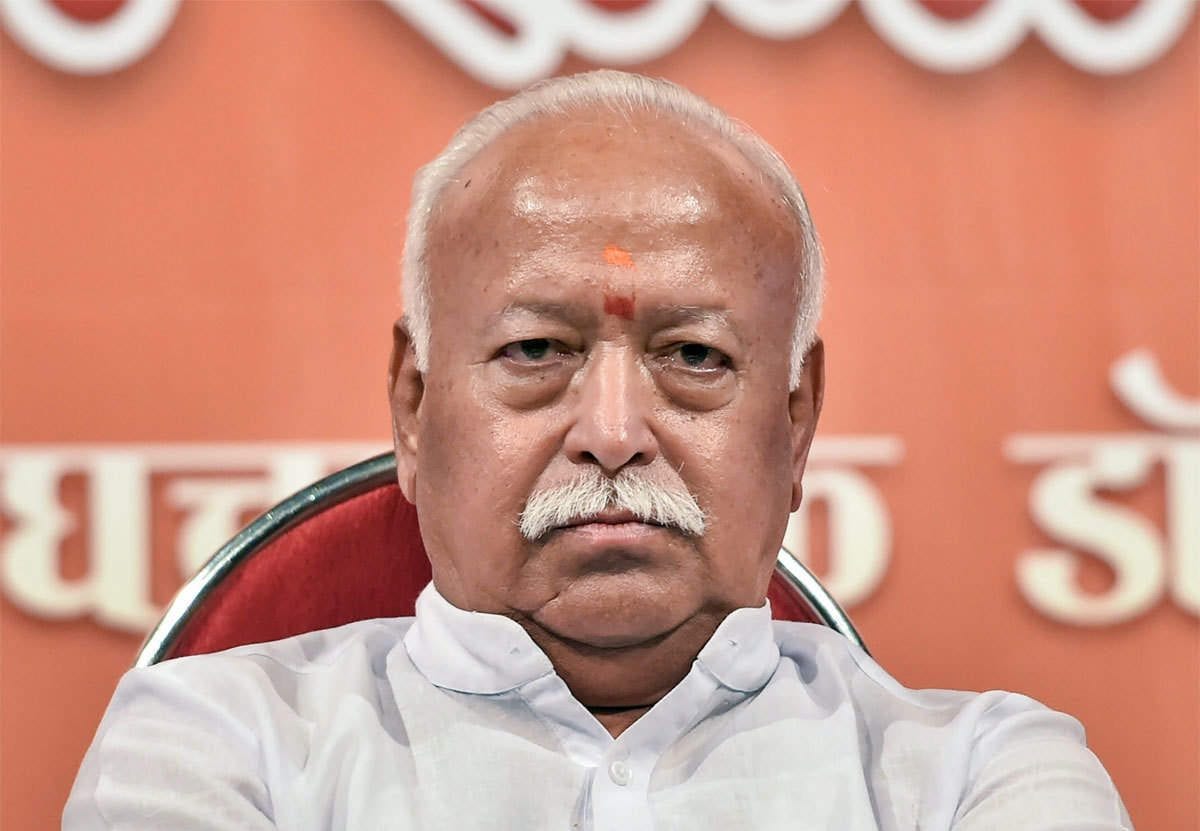
Kerala Muslim community split over RSS meet with Jamaat leaders

The Rastriya Swayamsevak Sangh’s (RSS) effort to reach out to the Muslim community has created a rift among Muslim organisations, particularly in Kerala. Muslim leaders in the state are split over the recent meeting between RSS leaders and representatives of Muslim organisations, including the Jamaat-e-Islami Hind (JIH), a staunch ideological opponent of Hindutva.
RSS leaders Indresh Kumar, Ram Lal, and Krishna Gopal met Muslim leaders behind closed doors for three hours at the home of former Lieutenant Governor Najeeb Jung in New Delhi on January 14. The Muslim delegation included Jamaat-e-Islami leader Mohtashim Khan, Niyaz Farooqui and Fazlur Rahman Qasmi representing Jamiat Ulema-e-Hind’s two factions, Nayi Dunia editor Shahid Siddiqui, former chief election commissioner SY Qureshi, and Jung himself. Eminent persons from Alighar Muslim University and Salman Chisti, the representative of Ajmer Dargah, were also present.
Watch: Will RSS tone down its rhetoric towards Muslims?
The controversy was sparked by the Jamaat-e-Islami’s general secretary and former Kerala Ameer, T Arif Ali, when he defended their participation in the discussion with the RSS leadership, stating the “fact” that the saffron outfit “controls” the Indian government and it’s important to keep the channel for discussions open.
KT Jaleel alleges vested interests
Jamaat-e-Islami’s stance has not gone down very well with its fellow community organisations and political parties. Former Higher Education Minister of Kerala and LDF MLA Dr KT Jaleel came down heavily on the JIH, accusing them of having vested interests.
“Media One, the TV channel run by the JIH, is facing a ban, and the case is still pending before the Supreme Court. The offices and institutions run by the organisation are under the radar of the Enforcement Directorate. Some of their leaders are allegedly re-registering their properties in the names of their children and other close family members to prevent those from being attached. They expect ED or I-T raids on their institutions and offices in the immediate future.
“That is why the JIH leaders attend these discussion dramas set up by the RSS. I would say the situation has compelled them to participate in it. The JIH leadership is taking these pre-emptive measures, as they fear that they could be the target of an investigation. Their source of income would be revealed in the event of such probe,” KT Jaleel told The Federal.
Also read: SC being used as ‘tool’ by anti-India forces: RSS-affiliated weekly
“Why did the RSS only invite paper organisations that have virtually no support from the Muslim community for discussions? Jamaat-e-Islami does not have the support of even one per cent of Indian Muslims. The fact is that the RSS wants to portray itself as being open to speaking with Muslim organisations like the JIH despite their extreme stance, by creating a smokescreen like this,” added Jaleel.
“As far as the JIH is concerned, if they wanted to address the problems faced by Indian Muslims, they should have at the very least spoken with the leaders of the BJP, the country’s ruling party, much less with the Prime Minister or the Home Minister,” said the former minister.
Cautious approach
Concerned about the JIH hobnobbing with the RSS, Indian Union Muslim League leaders were cautious in their response, even though they refrained from denouncing the Islamic group outright.
Also read: Bhagwat’s remarks on Muslims: Kerala Governor Khan defends RSS chief
“Anybody who believes in secular politics can hold any mediation discussion with the RSS,” said MK Muneer, former Kerala minister and IUML leader.
Sunni organisations are also agitated over the Jamaat’s overtures towards Hindutva politics. “This could amount to treachery,” said a Sunni leader in Kerala.
“RSS controls Indian state”
On the other hand, the Jamaat leadership has defended its decision to attend the meeting with the RSS leaders. “The news reports that claim JIH held one-on-one discussions with the RSS are misconstrued and misleading. It is true that an exchange of ideas took place between RSS functionaries and representatives of well-known Muslim organisations and some intellectuals. Both parties had predetermined and agreed upon the topic of the conversation.
“The consensus among Muslim organisations was that they should take advantage of the opportunity to discuss with the RSS leaders the problems that the Indian general public and Muslims were posing for some time. Mohan Bhagavat’s speech, in which he described Muslims as second-class citizens, mob lynchings, hate speech, and genocide were among the topics we chose to bring up, and we did,” said T Arif Ali in a statement.
“The socio-political atmosphere created by the RSS is the reason behind mob lynchings, hate speeches, and genocide. Therefore, it needs to be discussed with them. Besides, it is they who control the Indian state now. The Muslim organisations believe that in a democratic country, there should be discussions and talks along with agitations and disagreements,” Arif Ali clarified.
“Sangh Parivar design”
“This discussion with the Muslim organisations was a Sangh Parivar design that was successfully carried out. They wanted to subjugate the Muslim outfits, and organisations like Jamaat-e-Islami played to their tune. Normalising the Hindutva bandwagon poses the worst political danger in contemporary India, and the Jamaat has played a significant part in it,” believes Sreeja Neyyattinkara, a social activist, who, until last year, was the secular, female face of the Jamaat-backed political outfit, Welfare Party of India.
Also read: Muslims must give up ‘rhetoric of supremacy’: RSS chief Mohan Bhagwat
Jamaat-e-Islami is not the only Muslim outfit with a significant support base in Kerala to cosy up with the Sangh Parivar. The decision by Kerala Nadvathul Mujahiddeen, which adheres to Salafist principles of Islam, to invite BJP leaders to their state conference had triggered a controversy. It is interesting that those who spearheaded the tirade against them were Jamaat leaders and supporters.

